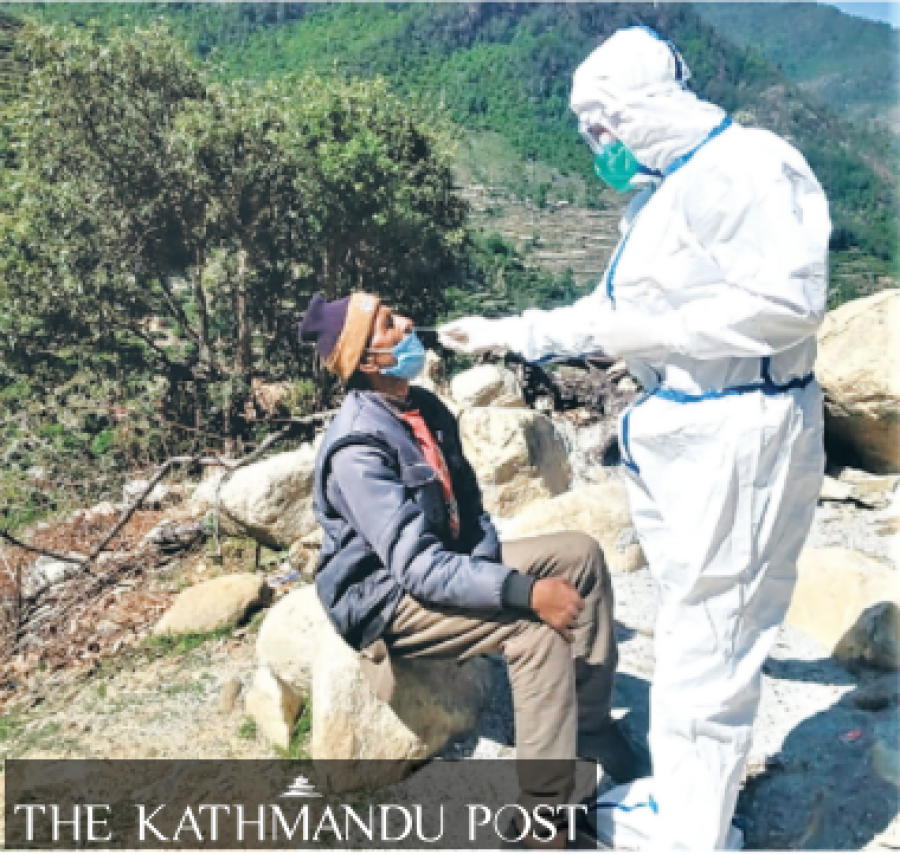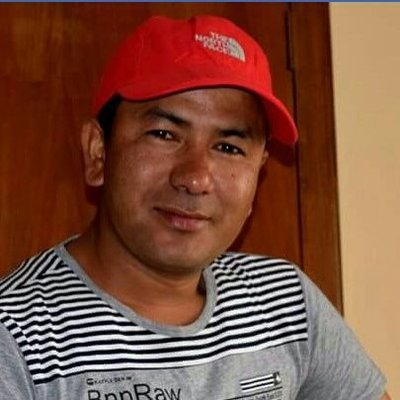Sudurpaschim Province
Bajhang residents refuse Covid-19 tests to avoid missing out planting season
As many as 19 people have died of Covid-19 in Bajhang, but officials suspect actual deaths could be higher.
Basant Pratap Singh
Last week, a 72-year-old man from Jalim in Bittahdchir Rural Municipality, Bajhang was bedridden due to fever and cough. Health workers from Deulek Primary Health Centre were called in for his treatment.
Jayaraj Awasthi, a health worker at the Primary Health Centre, went to the patient’s house carrying medicines and antigen test kits. “The patient had shown all the symptoms of Covid-19. But his son did not allow us to perform Covid-19 test on him,” said Awasthi.
Most villagers in the rural municipality are refusing to undergo Covid-19 tests fearing the stigma associated with the disease. The villagers cannot afford to miss the paddy planting season, say health workers.
“The local people are busy irrigating their fields. If they tested positive, they would have to go into isolation or to a hospital,” said Awasthi. “If they don’t work in their fields, there will be nothing to harvest. The pandemic has threatened their lives and livelihood. It’s difficult to convince them to undergo Covid-19 tests. They fear Covid-19 but also fear testing positive.”
“I tried to alert the patient’s family about the risks of not getting tested but they wouldn’t listen to me. I gave him some medicine and came back,” said Awasthi. “His wife is also showing coronavirus symptoms but she also refused to get tested.”
Last week, a health camp was organised at Dangaji in Thalara Municipality for general health consultation for the villagers and also to run Covid-19 tests on those with the symptoms. According to the municipality, around 100 individuals had arrived for a checkup but a majority of them refused to undergo antigen tests.
“Eighteen people agreed to undergo antigen tests. One person tested positive,” said Bishal Ojha, a lab assistant of Thalara Rural Municipality. “We couldn’t convince the rest to undergo tests.”
A team of health workers from Luyata Health Post in Ward No. 4 of Jayprithvi Municipality also faced similar obstacles. They were deployed to pay door-to-door visits to conduct antigen tests but the health workers returned without conducting any test.
“There were people with Covid-19-like symptoms but they refused to undergo testing,” said Narendra Thapa, the in-charge at Luyata Health Post. “They were scared because they would have to go into isolation during the paddy planting season if they tested positive”
According to the District Health Office in Bajhang, the threat of the coronavirus in rural villages is still high due to the hesitation among villagers to get tested and seek treatment.
A few weeks ago, the District Health Office launched a testing campaign with 7,000 antigen kits but the campaign failed to take off as nobody came forward for tests.
“We have used only 2,350 antigen kits out of the total 7,000 kits that we received since the start of the second wave of Covid-19. The villagers refuse to be tested even when we reach their doorsteps,” said Narayan Joshi, the information officer at the District Health Office.
According to health officials, even symptomatic patients are refusing to get tested for fear of being sent to hospitals. The delay in testing and treatment has had serious consequences in villages in the district with the District Health Office estimating the number of coronavirus-related deaths in the district to be around 30 in the last few weeks.
“Since there were no tests conducted, we don’t have the exact figure. But we think there were around 30 coronavirus-related deaths and they were mostly caused due to delay in treatment,” said Bhanu Bhakta Joshi, the chief at the District Health Office.
“We have learnt that there have been more than 30 coronavirus-related deaths in Jayaprithvi, Bungal, Chhabis Pathivera, Durgathali and Khaptad Chhanna areas,” he said.
According to the office record, 19 people have died of Covid-19 infection in Bajhang so far. A total of 1,593 people have tested positive for the disease in the district with 170 active cases. However, health workers say the actual number of Covid-19 cases could be higher.
“People are dying almost every day but it’s difficult to make the villagers understand the importance of timely testing and treatment to defeat the virus,” said Joshi.




 11.84°C Kathmandu
11.84°C Kathmandu















